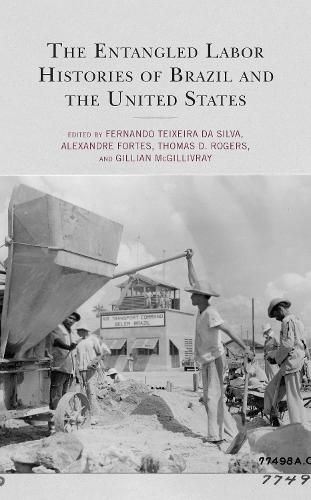Readings Newsletter
Become a Readings Member to make your shopping experience even easier.
Sign in or sign up for free!
You’re not far away from qualifying for FREE standard shipping within Australia
You’ve qualified for FREE standard shipping within Australia
The cart is loading…






Workers in Brazil and the United States have followed parallel and entangled histories for many centuries. Recent experiences with progressive, popular presidents and authoritarian, populist presidents in the two most populous countries in the hemisphere have underscored important similarities. The contributors in this volume focus on the comparative and transnational histories of labor between and across Brazil and the United States. The countries’ histories bear the marks of slavery, racism, transoceanic immigration, and rapid urbanization, as well as strong regional differentiation and inequalities. These features decisively shaped the working classes. Brazilian and US labor history debates have erupted and subsided at different times. This collection synthesizes those debates while adding new topics and new sources from both countries. The international group of historians’ methodologically innovative chapters explore links, resonances, and divergences between US and Brazilian labor history. They widen the scope of analysis for themes and problems that have long been familiar to historians of work and workers in the two countries, but have not provoked close dialogues between scholars in the respective places. Though the histories themselves were often entangled, the debates about them have too rarely intertwined.
$9.00 standard shipping within Australia
FREE standard shipping within Australia for orders over $100.00
Express & International shipping calculated at checkout
Workers in Brazil and the United States have followed parallel and entangled histories for many centuries. Recent experiences with progressive, popular presidents and authoritarian, populist presidents in the two most populous countries in the hemisphere have underscored important similarities. The contributors in this volume focus on the comparative and transnational histories of labor between and across Brazil and the United States. The countries’ histories bear the marks of slavery, racism, transoceanic immigration, and rapid urbanization, as well as strong regional differentiation and inequalities. These features decisively shaped the working classes. Brazilian and US labor history debates have erupted and subsided at different times. This collection synthesizes those debates while adding new topics and new sources from both countries. The international group of historians’ methodologically innovative chapters explore links, resonances, and divergences between US and Brazilian labor history. They widen the scope of analysis for themes and problems that have long been familiar to historians of work and workers in the two countries, but have not provoked close dialogues between scholars in the respective places. Though the histories themselves were often entangled, the debates about them have too rarely intertwined.